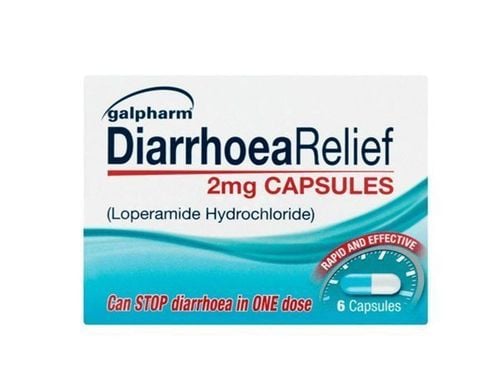This is an automatically translated article.
Gastroesophageal reflux in children occurs when the lower esophageal sphincter becomes loose and does not close properly or opens at the wrong time. There are many causes and triggers for infant reflux. Therefore, when seeing a child showing signs of this condition, parents need to soon take the child to a health center for examination and advice from a doctor.
1. What are the symptoms of infant reflux?
Newborns with GERD often cause reflux or stomach contents to pass through the esophagus and into the baby's throat or mouth. This condition will make your child more prone to spitting up and coughing up along with other signs, such as:
Back arching and unusual movements of the neck, chin Choking, vomiting or difficulty swallowing Irritability, especially especially when it occurs with vomiting Loss of appetite or skipping meals Complications, such as poor weight gain, coughing or wheezing Vomiting
2. The factors that stimulate the infant to have gastroesophageal reflux
Pediatricians say there are factors that make some babies more likely to have GERD than others. For example, during the first 6 months of life, infants spend a lot of time lying down and the lower esophageal sphincter is not as fully developed as older children or adults. These factors make stomach contents more likely to back up into the esophagus. As infants spend more time sitting upright, eating more solid foods, and growing and developing, this condition will also quickly improve. In addition, predisposing factors for infant reflux have been documented, including:
Premature infants Conditions affecting the lungs, such as cystic fibrosis Conditions affecting the system neurological conditions, such as cerebral palsy Diaphragmatic hernia, this is a condition in which an opening in the diaphragm allows the upper part of the stomach to move up into the ribcage. Previous surgery to correct the structure of the esophagus as a birth defect. In addition, there are a number of environmental factors that can predispose infants to gastroesophageal reflux such as:
Obesity. Certain medications are used for asthma. Passive smoking Upper abdominal surgery Genetics, as gastroesophageal reflux disease also tends to run in families. Watch now: Gastroesophageal reflux symptoms in babies
3. How to take care of babies with gastroesophageal reflux?
3.1.How to feed the baby Put the baby upright during feeding. Burp your baby 30 to 60 ml after each feed. Try to hold your baby upright over your shoulder to burp your baby. Placing your baby in a sitting position when burping can make reflux symptoms worse. Do not overfeed your baby: Discuss with your doctor how much milk your baby should be getting at each feeding. If vomiting or reflux symptoms occur, consider reducing the amount per feed and feeding more frequently. Overfeeding a child can make reflux symptoms worse. 3.2. Medication Doctors may prescribe medication to treat infants with gastroesophageal reflux disease. It is important for parents or caregivers of infants with GERD to know the right time to take medication to effectively improve symptoms.
3.3.Positioning It is very important to hold the baby upright so that he burps about half an hour after each feed. Plan an activity or playtime for two hours before feeding. Create a safe sleeping environment for your baby. Place the baby on his or her back to sleep. When baby is in bed, make sure both side rails are raised. The baby's crib should always be in a smoke-free area. Always use an appropriate child car seat on every trip. Do not let your baby sleep in the car seat.
4. When to call the doctor?
Notify the doctor when you see the following signs in your child:
Your baby is losing weight or not gaining weight. There is blood in the baby's vomit. The child has breathing problems such as difficulty breathing, stops breathing, pale skin, a chronic cough or wheezing. Fever Your baby seems to have pain while feeding. Constant crying Your baby's vomiting while feeding gets worse. The baby shows signs of dehydration (dry mouth, sunken eyes, sunken fontanelle and very little urine output). Do not urinate for six hours or more. In summary, infants with gastroesophageal reflux is a common condition in these days. However, most children respond well to treatment and lifestyle changes if parents know how to care for an infant with GERD. Even so, many children need continued medication to control symptoms, especially when structural abnormalities are present. Whatever the cause, parents need to promptly take their children to the doctor for examination and adjustment, to avoid affecting the child's nutritional status in the long run.
With many years of experience in examining and treating diseases in children, now the Pediatrics Department at Vinmec International General Hospital has become one of the major health care centers, capable of examining children. screening and treatment of many specialized diseases in children. Therefore, if the child shows signs of gastroesophageal reflux disease, parents can take the child to Vinmec International General Hospital for examination and receive support and advice from doctors and experts. health.
Please dial HOTLINE for more information or register for an appointment HERE. Download MyVinmec app to make appointments faster and to manage your bookings easily.
References: /medlineplus.gov, niddk.nih.gov, .nationwidechildrens.org











